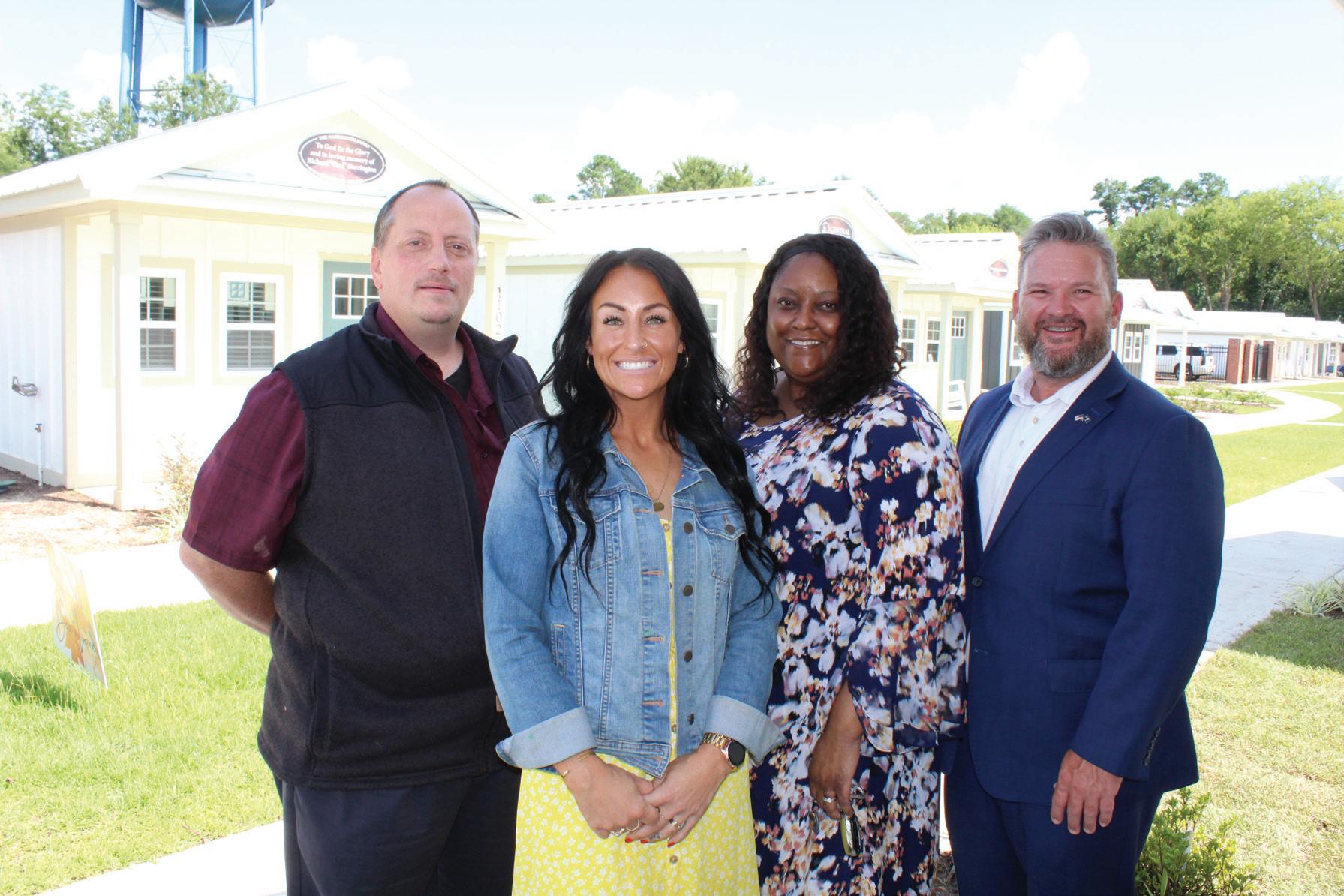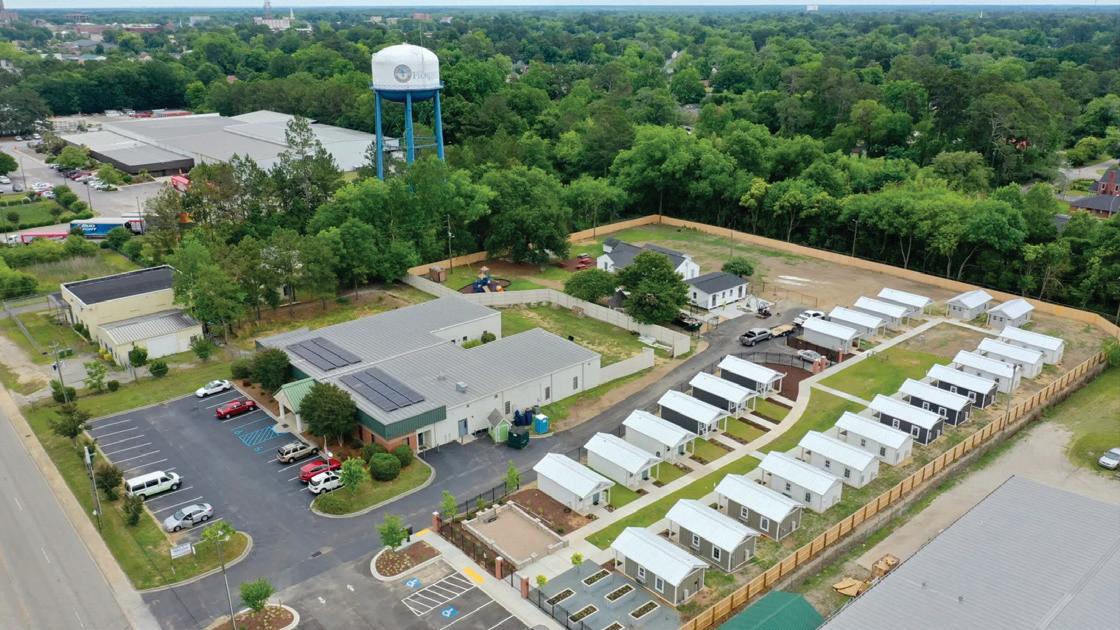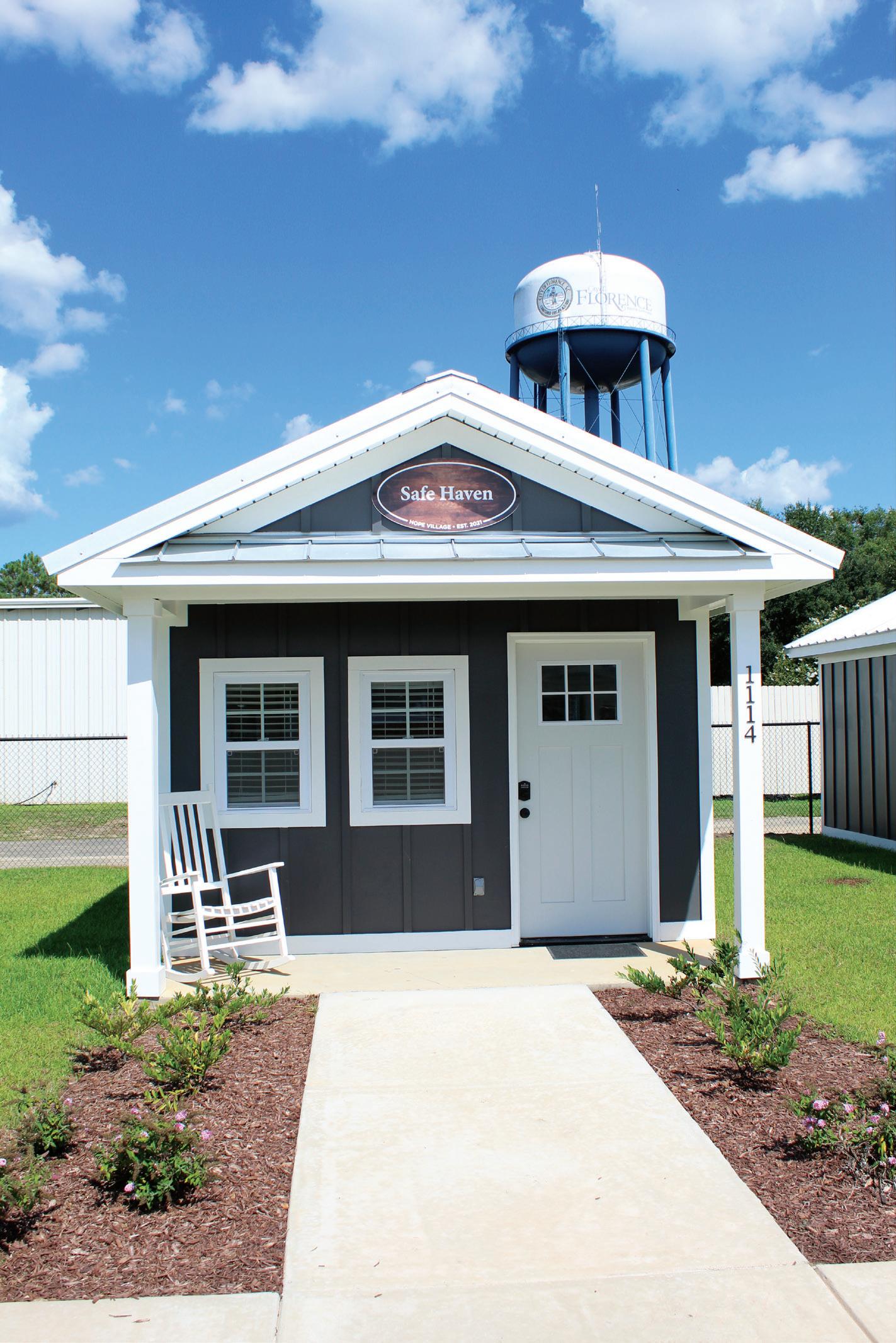
3 minute read
House of Hope: HOPE Village
from September 2022
by VIP Magazine
Dignity, Safety, Love of Christ:
Sam White, Casea David, Wanda Vereen and Bryan Braddock
Advertisement
“A program like HOPE Village can change the course of life,” said Casea David, Director of HOPE Village.

The Foundational Pillars of HOPE Village
story by Kimberly Brauss
Isaiah 32:18
Built and furnished from contributions from individuals, churches, area businesses, and foundations, House of Hope’s HOPE village opened and welcomed its first residents in June completely debt free – emphasizing that it takes a village to raise and lift up the people in it. According to the 2020 South Carolina State of Homelessness Report, Florence County’s homeless population ranks seventh in the top 10 counties in the state. Back in 2018, a tiny house village in Easley caught the attention of House of Hope in Florence. The ministry saw it as an answer to provide hope for those in need of their support and long-term transitional housing. HOPE Village stands for Housing, Opportunity, Progress, and Encouragement. The core guiding principles are Dignity, Safety, and a daily demonstration of the Love of Christ to clients. House of Hope in Florence created the tiny house village to provide longterm shelter for homeless families for up to 24 months. It has a community center, laundry, privacy, and security fencing along with a security team licensed through South Carolina Law Enforcement Division as a college campus has for its students. The program offers women an opportunity to get the training needed to support themselves and their families away from the tiny houses. Studies show having a two-year program yields better success in getting permanent housing.

“Extending the timeframe to two years, only 19 percent of persons returned to homelessness after exiting to a permanent destination. This demonstrates that four out of five clients who successfully exit a homeless assistance project maintain their stable housing and do not come back in contact with a homeless assistance project,” according to the 2020 South Carolina State of Homelessness Report prepared by South Carolina Interagency Council on Homelessness (SCICH), its partner agencies, and the state’s four Continuums of Care. House of Hope’s HOPE Village and its program can change the course of a life and generations to follow, David said. The tiny houses are much more than just a place to stay. In the coming months, HOPE Village will grow from the 13 homes to consist of 24 tiny homes. Those living in the village have their own client services program regarding specific classes to take but all will be required to participate in group chapel, Bible Study, Financial Peace Training, Jobs for Life, Reformers Unanimous or Celebrate Recovery programs. All basic needs, as well as professional services, are provided: housing, food, clothing, transportation, case management, counseling, job training, addiction recovery, etc. There’s a curfew, as well, from 10 p.m. to 5 a.m. Clients can leave the property for scheduled appointments, visits, and daily activities. They must coordinate with the HOPE Village Director and Case Manager. Those interested in the program can apply through the Case Manager at the Courtney McGinnis Graham Community Shelter or through the HOPE Village Director. House of Hope also partners with local agencies as well to receive referrals. Homelessness is defined as not on a lease, rental or own project. Clients cannot be in active addiction, in an active domestic violence situation, or have untreated mental health issues. Basically, as long as the client is not a threat to themselves or others they qualify, David explains. Women are being accepted into the program currently. Eventually, men will be allowed but they’ll live separately. Via policies and procedures, there also will be a fence barrier. “We also have several cameras and onsite security to maintain separation of men and women within the community,” David said. “My goal is to be a champion and advocate for their spiritual, mental, emotional, physical, and vocational needs so that they can become who they were always meant to be. I want these women to live in the same promise of restoration that I have found as the Lord speaks about in Joel 2:25, ‘And I will restore to you the years that locus have eaten.’”

For more information on HOPE Village: www.hofh.org/hope-village/











